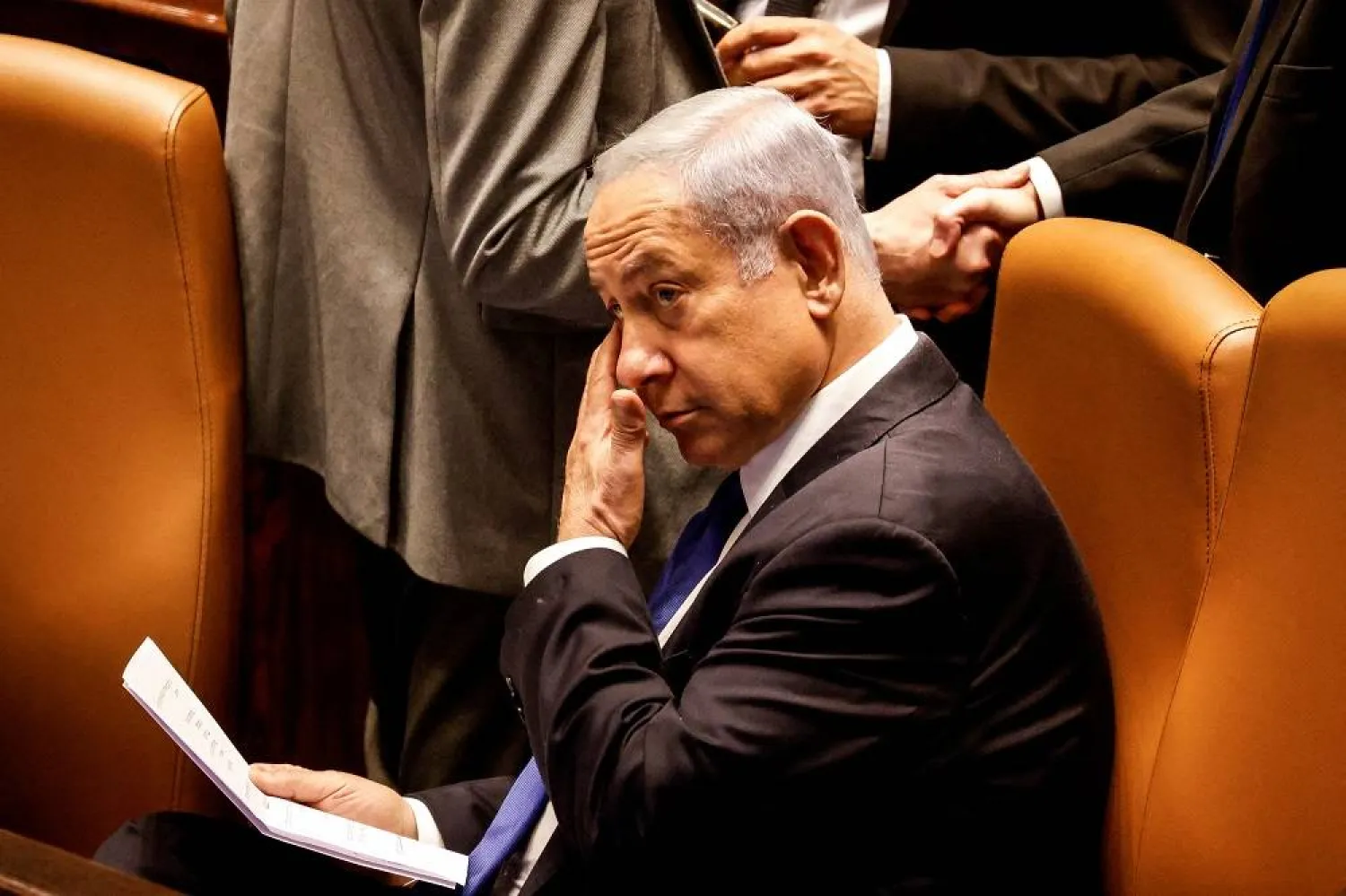Prime Minister Benjamin Netanyahu suffered a hit in the polls over a judicial law his hard-right coalition has championed as he attempts to navigate his gravest domestic crisis.
Surveys published late on Tuesday by two main Israeli news broadcasters showed that if an election was held now, the number of seats held by Netanyahu's governing coalition in the 120-seat Knesset would fall from 64 to 52 or 53.
Seats held by Netanyahu's Likud party would fall from 32 to 28, according to N12 News, and to as low as 25 seats in a survey by broadcaster Reshet 13.
On Monday, Netanyahu's nationalist-religious coalition, formed after an election on Nov. 1 last year, gave parliamentary approval to legislation that will limit some of the Supreme Court's powers, despite mass street protests.
It was the first ratification of a bill that is part of a government bid to overhaul the judiciary.
Israel's close ally the United States called the Knesset vote "unfortunate" and urged work toward a broad consensus. But it offered no hint that Netanyahu’s government could face practical consequences, exposing the limits of President Joe Biden’s ability to rein in the long-serving right-wing leader.
Israeli doctors declared a strike on Tuesday and more army reservists have asked to halt service in a public backlash over the hard-right government's moves.
Israel's military took its first known internal disciplinary action over the protests. One reservist was fined 1,000 shekels ($270) and another given a suspended 15-day jail sentence for ignoring call-ups.
"There has been an increase in requests to halt reserve duty," Brigadier General Daniel Hagari told Israeli reporters in remarks confirmed by a military spokesman.
"If reservists do not report for duty for a long duration, there will be damage done to the preparedness of the military," Hagari said, adding this would be "a gradual process".
Protest leaders said growing numbers of military reservists would no longer report for duty if the government pressed ahead with its plans.
Israel's enemies have convened top-level meetings to consider the turmoil and how they might capitalize on it, sources familiar with the discussions told Reuters.
The crisis has split Israeli society and hit the economy hard by triggering foreign investor flight, weakening the shekel and raising the specter of a general strike by the Histadrut public sector union.









